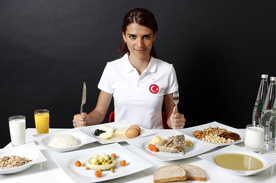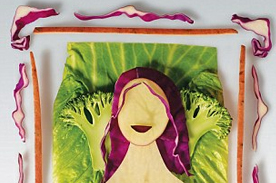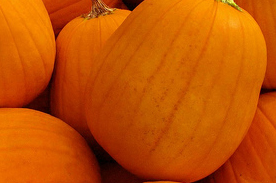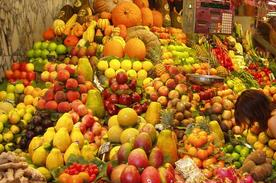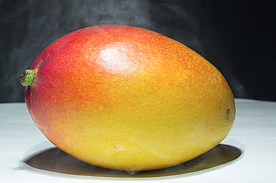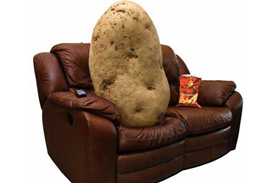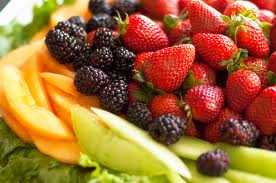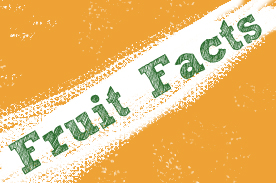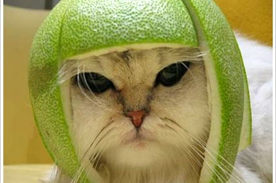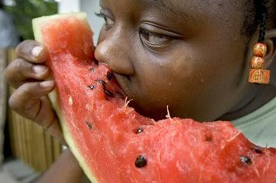Is making sure we drink two litres of water a day a waste of time and money?
Along with getting our five a day, millions of us try to glug two litres of water a day thanks to messages that have been drummed into us for years by the NHS and health experts.
We believe it helps keep us healthy and slim, but last week, Australian nutritionist Spero Tsindos, at La Trobe University in Melbourne, sparked controversy by claiming that eight glasses of water a day ‘is over the top’ and instead of hydrating our body’s cells, we just pee most of it out.
What’s more, he claims, it doesn’t help weight loss without a low-calorie diet, and in fact drinking tea and coffee, which we’ve been encouraged to limit, actually count towards our daily liquid intake.
So what is the truth about H20?
How much water do we really need?
“Strictly speaking, most people don’t need two litres of water a day,” agrees Dr Carina Norris, a nutritionist and author of Healthy Eating. “We get a lot of water from food – especially fruit and vegetables – and from other beverages such as tea, coffee and juice. However, two litres is a good amount to aim for and trying to stick to eight glasses a day certainly won’t hurt you.”
The benefits of staying hydrated include better health, digestion, improved immunity and it’ll leave you alert and energised. So what is enough?
‘The best way to tell if you’re drinking enough water is to look at the colour of your pee,’ says Dr Sarah Brewer.
“A pale straw colour shows you’re drinking enough – if it’s darker than this, you should aim to drink more.
The first pee of the day doesn’t count though. “This tends to be much darker due to the fact you haven’t been to the toilet all night. However, there is such a thing as a dangerous amount of water,” adds Dr Norris.
“Water intoxication is where a person drinks so much it dilutes the salt in their blood. It can leave you lethargic, light-headed and in extreme cases, it can be fatal. But, this happens very rarely and only tends to occur when people are dehydrated through exercise and they suddenly drink two or three litres in a short space of time.
“But drinking a similar amount over the course of a day won’t do you any harm. Especially if it’s hot, you’re exercising, travelling on a plane (dehydrating) or in an air-conditioned office.”
Do tea and coffee count?
Yes, good news if you’re always trying to cut down on the amount you drink. “We should be telling people that beverages like tea and coffee contribute to a person’s fluid needs and, despite their caffeine content, do not lead to dehydration,” says Tsindos.
And Dr Norris agrees. “Not only do tea and coffee count towards your daily fluid intake, but they actually have health benefits and are full of antioxidants. They’re dehydrating because they’re both diuretic – i.e. they make you wee a lot – but they contain enough water to make up for this.”
So what are these health benefits? A recent study published in the health journal Nutrition Bulletin discovered that three cups of tea a day reduces your risk of diabetes and heart disease.
Another recent study – this time from the National Cancer Institute, US – found that regular coffee drinkers are less likely to die from a host of illnesses including heart disease, stroke and diabetes.
Green tea has also been shown to speed up metabolism and aid weight loss.
“It used to be said that tea and coffee didn’t count,” says Dr Brewer.
“However, new research suggests this isn’t the case.”
Which is a good excuse to put the kettle on!
Are soft drinks part of my daily allowance?
In theory, fruit juice and fizzy drinks do count towards your water intake, but some of them have lots of sugar and calories, which can reduce the health benefits of their extra fluid. “They’re OK in small amounts, but pure water is much healthier,” says Dr Norris.
A recent study from the University of Glasgow found that Brits regularly underestimate the amount of sugar in seemingly healthy drinks like fruit juice and smoothies, and that the average person drinks 3,144 calories a week through non-alcoholic beverages. A similar thing applies to ‘hydrating sports drinks’.
Dr Brewer adds: “Most people who drink them do so sitting at their desk, so they get a hit of sugar they don’t actually need. The only exception is coconut water, like Vito Coco Coconut Water, which has become popular with celebrities in recent years, thanks to the fact it’s refreshing and full of vitamins.”
The only drink that doesn’t count towards your fluid intake is alcohol.
“It’s so dehydrating. A small glass of wine is OK, and studies show moderate amounts of alcohol lower blood pressure and help relax you, but any more than this is bad for your health,” says Dr Brewer.
Other ways you can ‘eat’ water
According to Tsindos, we should also consider the fluid in unprocessed fruits and vegetables, a claim backed up by recent research from the Institute of Medicine in the US, showing that 20% of our daily water intake comes from food.
Dr Norris agrees: “Our food contains a surprising amount of water, which counts towards our daily intake. Fruits and vegetables are a particularly good source, along with soup.”
The best ‘watery’ fruit and veg include lettuce, cucumber, melons (especially watermelons), berries, citrus fruits (kiwis, oranges) pears, mushrooms and dark green, leafy vegetables (broccoli, cabbage, rocket etc).
“Soup is particularly good,” says Dr Norris, who says that studies show people who eat soup before a meal eat less calories overall and tend to be slimmer.
“It’s thought that water in food fills you up more than food and water separately,” she explains.
So be sure to eat soup as often as possible – pick one that contains some lean protein (chicken, ham) and includes a selection of vegetables.
Is bottled water better than tap?
In the last 10 years, carrying a bottle of water has become a fashion statement, and one of Tsindos’s most controversial claims is that bottled water is a waste of time, an expensive gimmick driven by the bottled water industry.
Regarding the ‘two litres of water a day’ message, he says: “This has been interpreted to mean two litres of water specifically and it has driven a steady growth in the use of bottled water. Some 30 years ago you didn’t see a plastic water bottle anywhere, now they appear as fashion accessories, like tokens of instant gratification and symbolism, the very bottle itself is seen as cool and hip.”
So, are water bottles really an expensive waste of money?
“I personally wouldn’t bother with bottled water,” says Dr Norris.
“The tap water in this country is free, good quality and tastes good.”


